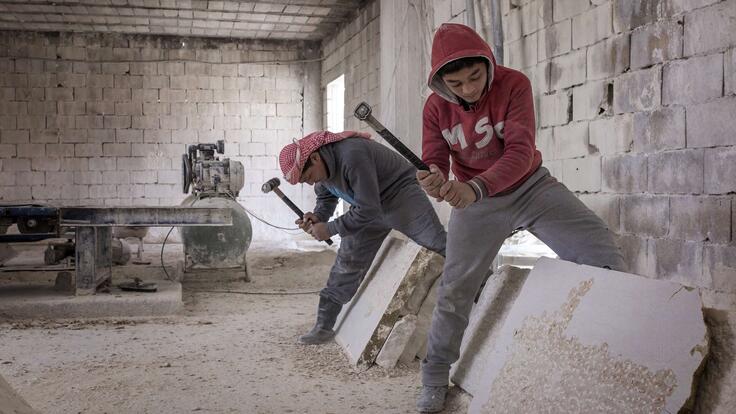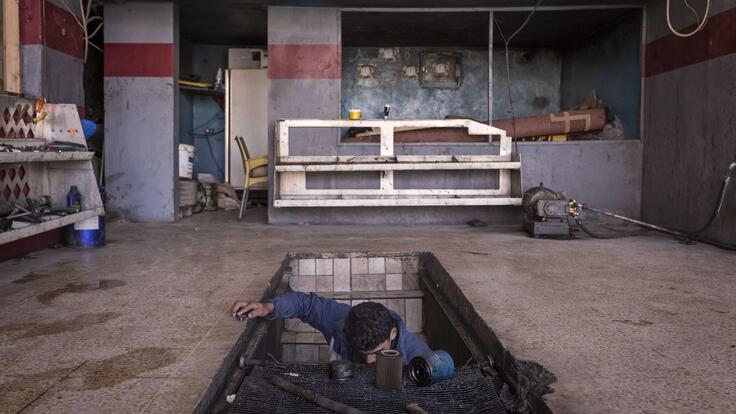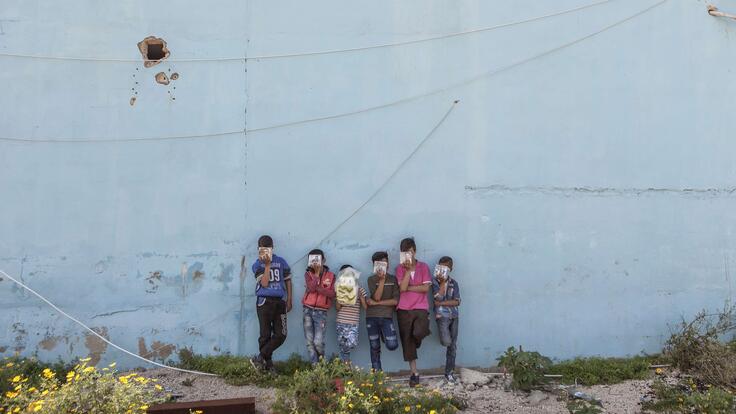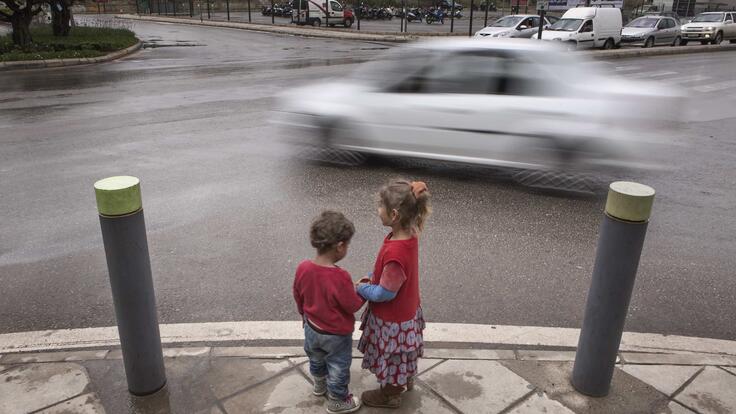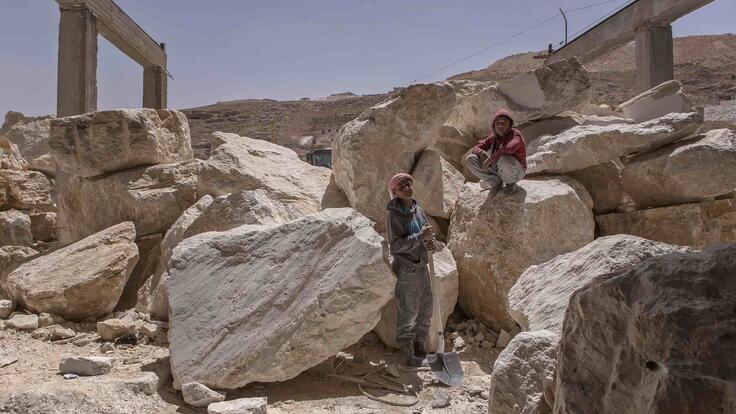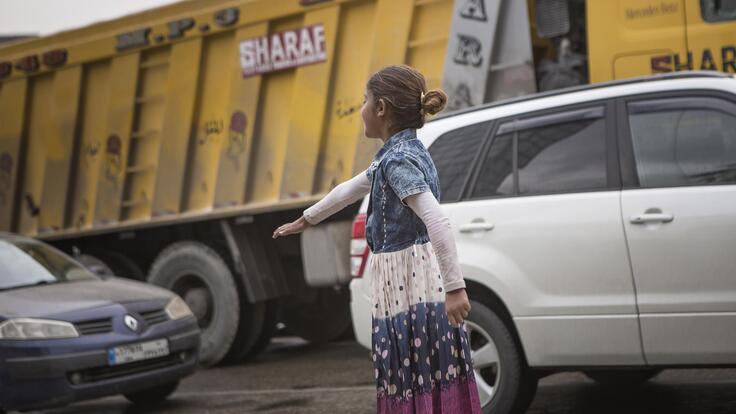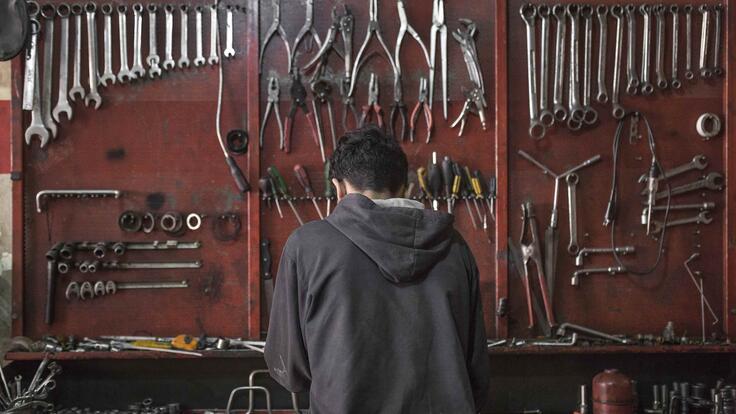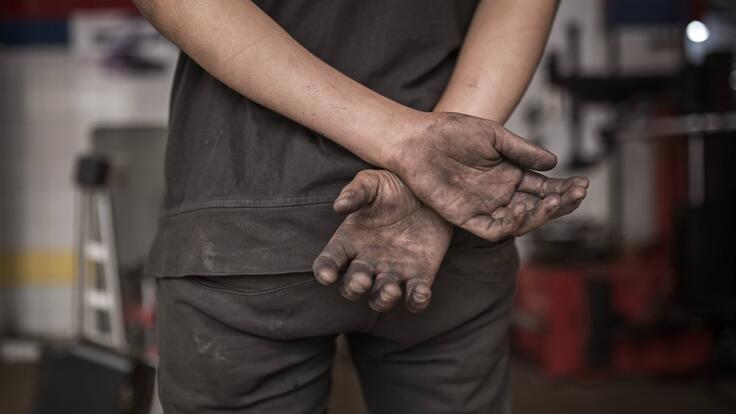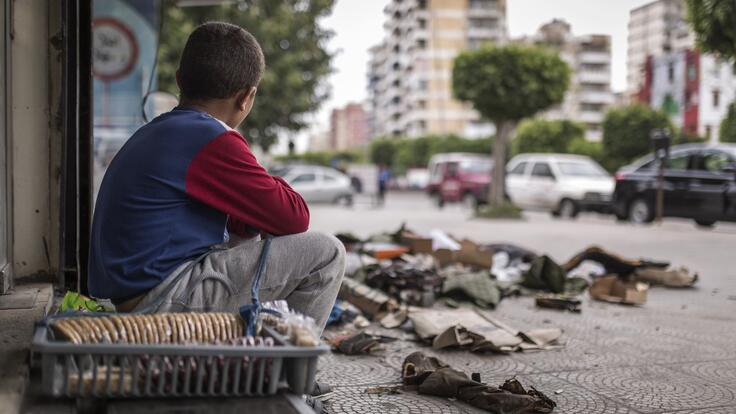These refugee children are left with no choice but to work on the streets
There are an estimated 100,000 children working in Lebanon, they're being robbed of their childhood and put at greater risk of violence. With no other way of buying food, they're forced out to work doing jobs like selling CDs on the roadside and working in quarries. With support from a number of funders, including Stichting Vluchteling (SV), European Commission - Civil Protection & Humanitarian Aid Operations, the SAID and Olayan Foundations, the International Rescue Committee has helped more than 2,000 children involved in child labour throughout Lebanon.
